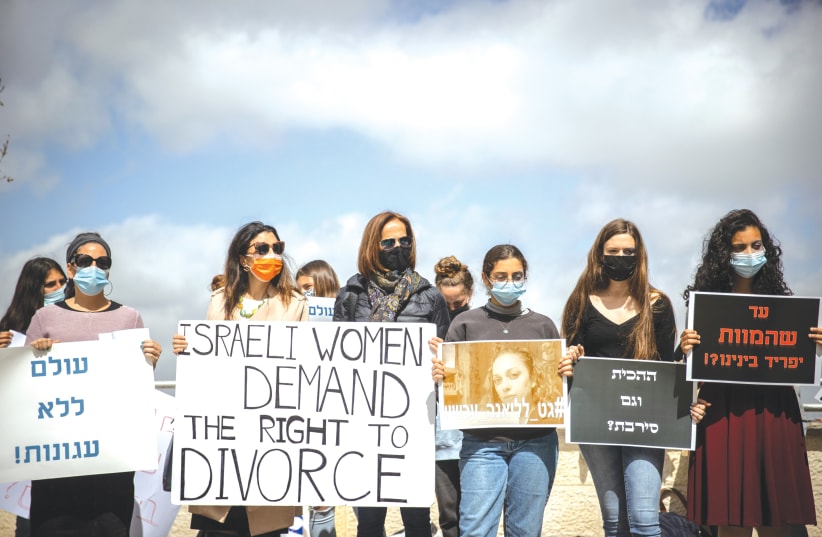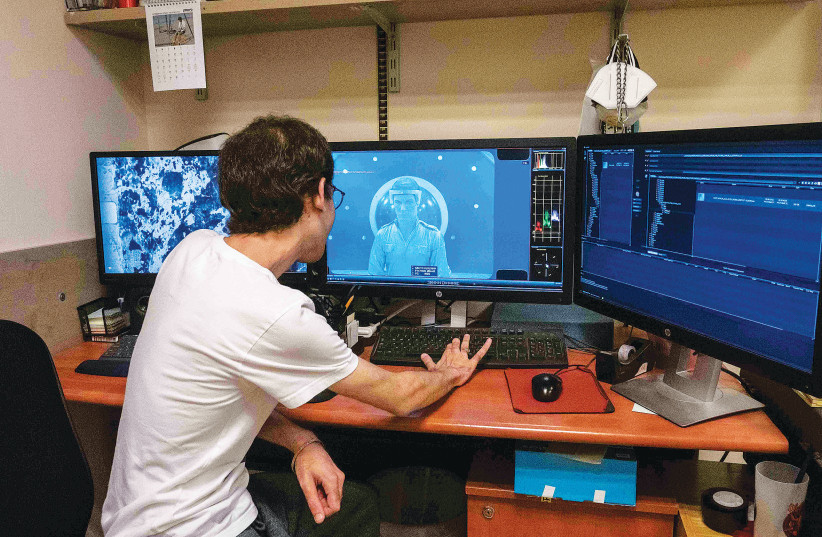Short films by graduates of the Maaleh School of Film and Television in Jerusalem about different forms of violence against women can now be seen on VOD at their website. These films will make for sometimes disturbing – but thought-provoking – viewing on the International Day for the Elimination of Violence Against Women on November 25.
The films are as different from each other as their protagonists’ experiences and bring to mind writer/director Nora Ephron’s exhortation: “Be the heroine of your life, not the victim.”
Neta Ariel, the director of the Maaleh School, said: “We encourage our students to express themselves, and we understand that many of the films they make will be about personal experiences, and so we work with them with sensitivity when they choose subjects such as sexual assault, violence and harassment.”
These movies, which were made during a period of about 20 years, are mostly set in the religious community (both the national religious and ultra-Orthodox branches), and show great depth of feeling as they tell stories of women coming to grips with traumatic experiences that are rarely discussed openly in any part of Israeli society. Maaleh offers a welcoming environment to observant film students, although not all its students are religious.
Maaleh gave me the opportunity to watch eight of these student films ahead of November 25. The films focus on the human drama of violence and its aftermath and create vivid characters that fall victim but try to survive in different ways. The fact that most of the films are set in the religious community, in a culture where many assume that, “it can’t happen here,” adds another layer of complexity.
“The religious community is not immune to all forms of violence, sadly, and these films can create awareness and help prevent further attacks,” she said.
Although the films are short, they cover a lot of ground. Tom Dadon-Mishaly’s In Silence tells the story of a religious teenager who is raped and cannot bring herself to tell her parents, who watch in bewilderment as her behavior suddenly changes.
Nava Nussan Hefetz’s Cohen’s Wife is a complex story about a woman married to a Cohen who must decide whether to deny that she was raped so that religious authorities will allow her husband to stay married to her.
Loren Trabelsi has two films on these subjects: Fight Back, about a female boxer who is put under pressure when a male teammate begins harassing her and Round Trip, about a young woman who is harassed on a bus, a situation so many have experienced but which is rarely portrayed on screen.
Shulamit Lifshitz’s Noa is about a young woman who does not feel safe in her own home when a predatory relative visits. Hadas Yona’s Taken is about a woman who takes her rapist hostage.
“When you make a movie like this and send it out into the world, it creates opportunities for women who have been in similar situations to open up about their own stories,” Ariel said.
Dadon-Mishaly hopes that the film will help “change the trend of people putting their head in the sand and ignoring what is going on around them.”
These films often touch a chord for viewers. Said Ariel: “Wherever these films are shown, they provoke very emotional reactions and many reach out to the directors, they become a hotline.”

